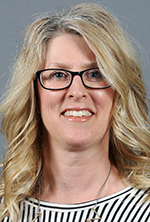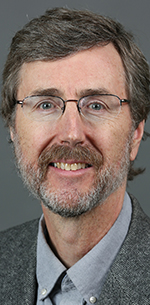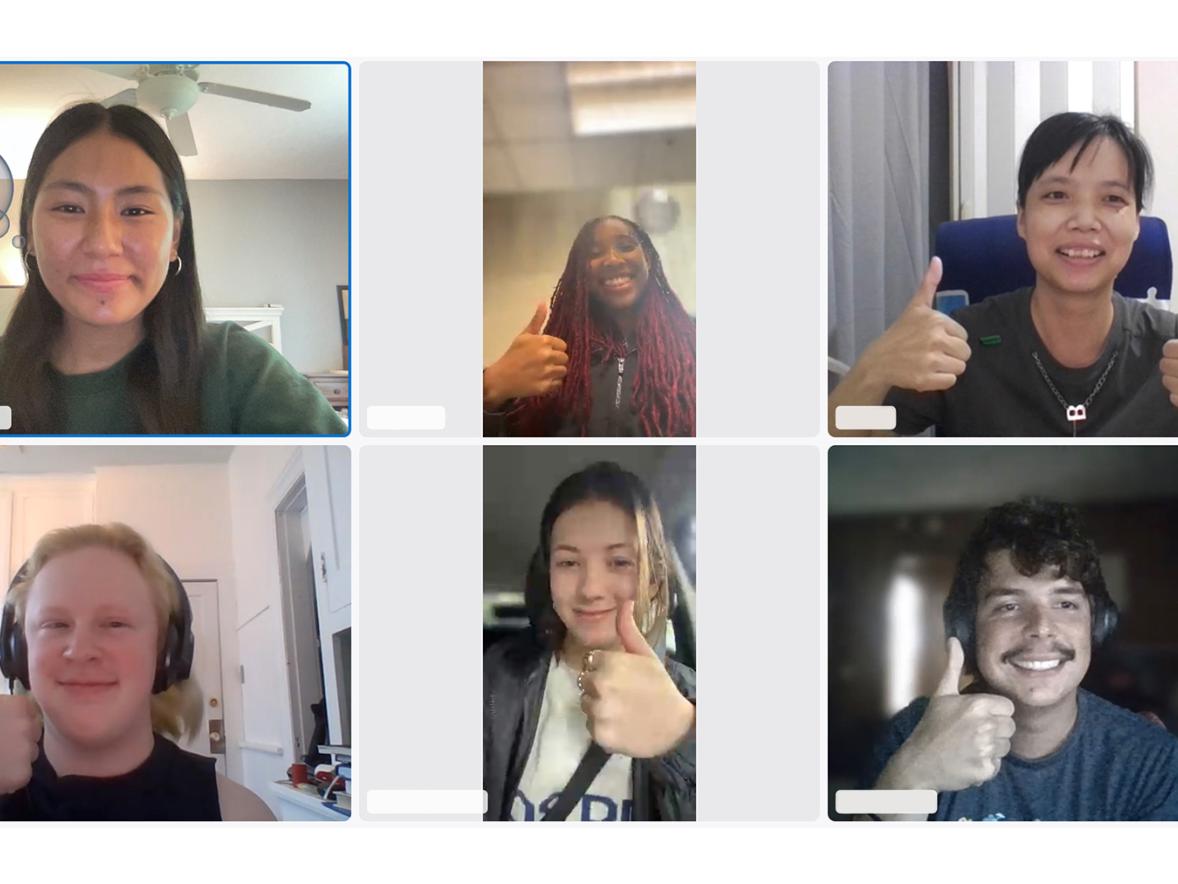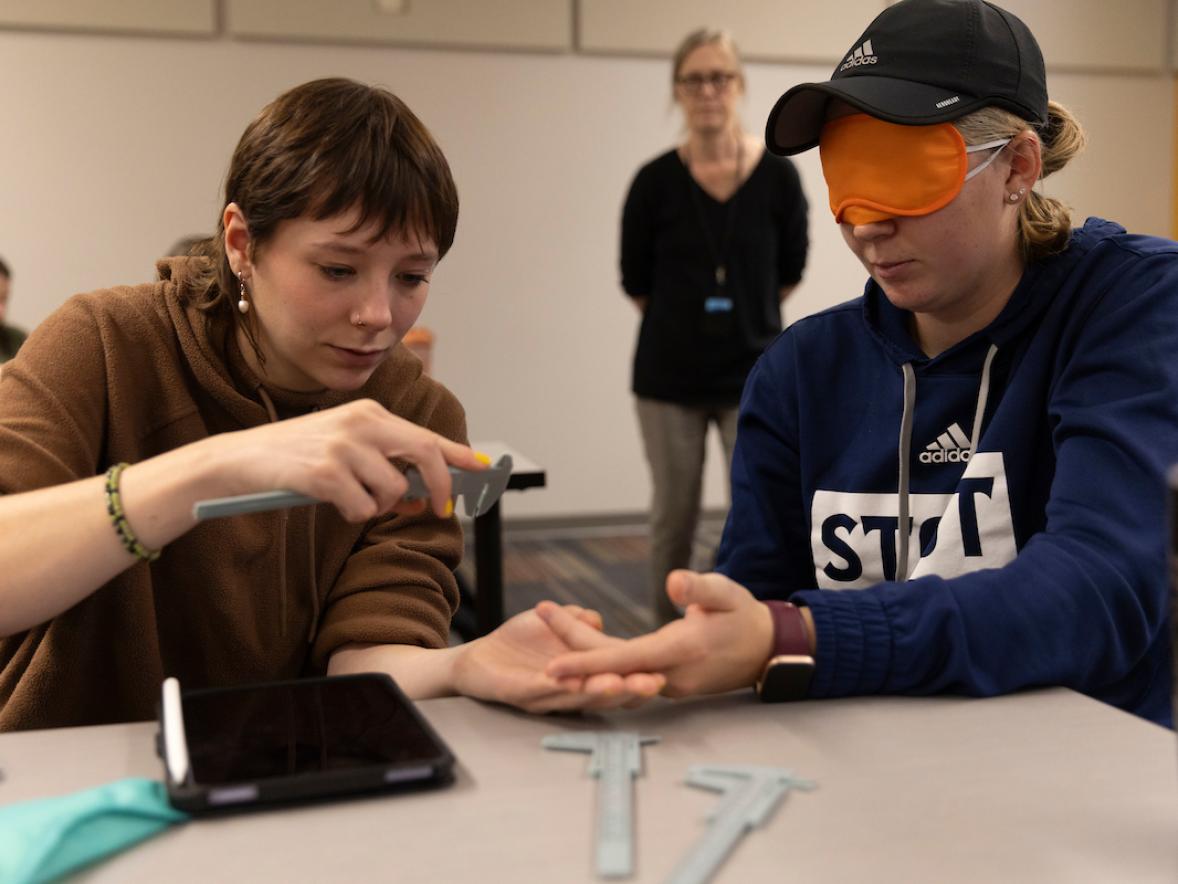Creating a healthier community one person at a time is the focus of an initiative to start a health and well-being center at University of Wisconsin-Stout.
Cristy Linse recently began work as director of the Initiative for the Creation of the UW-Stout Center for the Study and Promotion of Health and Wellbeing.
 Linse started working on incubator grant funds to get the initiative started and to apply for grants to establish the center. The center has been allocated $10,000 from the Community Foundation of Dunn County Board of Directors to support Health Dunn Right, a community coalition that includes the university, Mayo Clinic Health Systems, Dunn County Health Department and Community Foundation of Dunn County and for a capacity-building symposium in the spring.
Linse started working on incubator grant funds to get the initiative started and to apply for grants to establish the center. The center has been allocated $10,000 from the Community Foundation of Dunn County Board of Directors to support Health Dunn Right, a community coalition that includes the university, Mayo Clinic Health Systems, Dunn County Health Department and Community Foundation of Dunn County and for a capacity-building symposium in the spring.
An online giving page also has been created to help establish the center, which is expected to be self-sustaining through grants and/or private funding.
About 2½ years ago Bob Salt, dean of the College of Education, Hospitality, Health and Human Sciences, came up with the idea of the university housing such a center.
“For years I’ve had this idea there should be an education center to provide information to people in the larger community,” Salt said. “Health care is such an important part of our lives.”
The center could provide programs, conferences, workshops and other events for those in health and wellness fields to help them continue learning and to stay current with cutting-edge technologies, Salt said. “Practitioners could come together, share information and talk about how to improve public health,” Salt said. “It would help let the public know what is working and what is available.”
Salt envisions yearly conferences for the public that would be affordable to allow them to learn more about health care options, including affordability and availability. “A university is about learning,” Salt said. “Faculty, staff and students are all learning about what their training and expertise is about. The main thing I see with a center is providing information to the broader public to help improve the quality of health.”
Faculty and students would have the opportunity to conduct research through the center and work with the public. Students could be involved with needs assessments and resources related to their careers. The center would also allow a place for faculty and students to give back to the community, Salt added, and serve west-central Wisconsin.
In 2015 a county health needs assessment was done as part of the Dunn County Coalition on Health. It identified serious concerns including mental health, obesity, drug use, high risk alcohol use and nutrition as the top five issues, said Georgina Tegart, executive director of the Community Foundation of Dunn County.
“We need to engage the resources we have to fight the problems we’re having in Dunn County,” Tegart said. “The notion of having a health hub is a great idea. I think people find it difficult to find programs. This center is going to change all that. A one-stop shop is a great idea.”
Linse said UW-Stout has resources to serve the community. For example, psychology students could gather data and information, and graduate students could provide counseling services. Other programs linked to the initiative include health, wellness and fitness; dietetics; clinical counseling; human development and family studies; psychology; vocational rehabilitation; biology; applied social science; prehealth programs; applied science; food science and technology; environmental science.
One of the other goals of the center would be to connect industries with resources available to them to conduct wellness inventories on employee health and address employee needs, Linse said. Ideally, efforts would have a prevention-oriented focus.
Heritage Hall, where Linse’s office is located, is slated to be remodeled as part of the 2023-25 biennium and could possibly house a center. An entrance could be developed on the third floor north side.
KT Gallagher, director and health officer for the Dunn County Health Department, said having a center would allow agencies to share information and resources. Because Dunn County is a largely a rural area, transportation to and availability of health care is a factor.
“Cristy has a background in education,” Gallagher said. “Having a readily visible center would be a benefit.”
Linse taught in Milwaukee Public Schools for nine years before working at UW-Whitewater for 13 years in health education pedagogy. She also taught the class Elementary Health Education as an adjunct professor at UW-Milwaukee. In addition, she taught classes in epidemiology and health theories at Carroll University and a general wellness class at Madison Area Technical College.
She has a bachelor’s degree in school health education from UW-La Crosse, a master’s degree in educational leadership from National-Louis University in Evanston, Ill., and a doctorate degree in urban education, curriculum and instruction with an emphasis in health education from UW-Milwaukee.
Mental and emotional health needs are great, Linse said. Factors include availability and access to high-quality education, nutritious food, decent and safe housing, affordable and reliable public transportation, culturally sensitive health care providers, health insurance, and clean water and air, according to the Centers for Disease Control and Prevention. Geographic location also can impact health disparities.
“We recognize that addressing people as wholistic beings is important,” Linse said. “I believe we will build bridges by helping people stay healthy and get healthy. It’s not a matter of if people will experience health issues. It’s a matter of when.”
UW-Stout is Wisconsin’s Polytechnic University, with a focus on applied learning, collaboration with business and industry, and career outcomes.
###
Photos
Cristy Linse
Bob Salt






